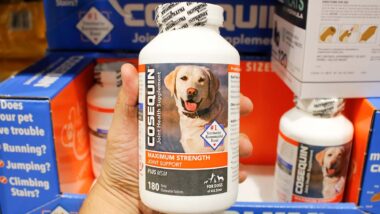Top Class Actions’s website and social media posts use affiliate links. If you make a purchase using such links, we may receive a commission, but it will not result in any additional charges to you. Please review our Affiliate Link Disclosure for more information.

Limited to spinal fusion procedures in which the lumbar spine is approached through the front, any other usage is considered “off-label.” It’s estimated that close to 90 percent of the Infuse bone grafts implanted in spinal surgery patients are in off-label procedures.
On Nov. 11, 2010, plaintiff Brett Smith of Mesa, Ariz. underwent “a transforaminal and posterolateral lumbar interbody fusion at L4-5 and L5-S1. To achieve fusion, Plaintiff’s surgeon performed an off-label procedure by utilizing a transforaminal and posterolateral approach, as well as by using Infuse at multiple disc levels and failing to use the required LT-Cage.”
The FDA-approved labeling for the Infuse Bone Graft System indicates in bold text that its components must be used as a system. This system includes an absorbable collagen sponge that is treated with rhBMP-2 and it’s LT-Cage. Any missing pieces, or posterior use, carries risk, but Smith was never informed of the dangers, according to his Infuse bone graft complications lawsuit.
Not long after surgery, Smith allegedly suffered severe pain at the site of the fusion and in his legs. He was diagnosed with case migration and had to undergo “extensive medical treatment.” Smith says Medtronic knew of the risks, and that its lack of discretion was “malicious, intentional, and outrageous and constitutes a willful and wanton disregard to the rights and safety of other. “ He says in his Medtronic lawsuit that he would not have consented to be treated with the off-label use of Infuse had he known of, or been informed by Medtronic or by his spine surgeon of, the true risks.
Brett’s Medtronic lawsuit alleges fraudulent misrepresentation and fraud in the inducement, failure to warn, design defects, misrepresentation, negligence, breach of express warranty, breach of Arizona’s consumer protection statutes, loss of consortium and punitive damages.
The Medtronic Infuse Lawsuit is Brett Smith v. Medtronic Inc., et al., in the U.S. District Court for the District of Arizona.
Improper Bone Graft Marketing and Risk Concealment
Smith joins other spinal surgery victims who allege that they suffered serious Infuse bone graft problems, including bone and nerve damage, urinary problems, and even an increased risk of cancer. All say Medtronic knew, or should have known, and that they were concealing the risks.
The FDA issued a Public Health Notification on July 1, 2008 warning of serious cervical spine complications that had occurred from the off-label use of Infuse and other similar products. The notice said the FDA had received numerous reports of complications from Bone Morphogenetic Protein use in the cervical spine that “were associated with swelling of neck and throat tissue, which resulted in compression of the airway and/or neurological structures in the neck. Some reports describe difficulty swallowing, breathing or speaking.”
Many Infuse lawsuits mention that specialists were allegedly paid by Medtronic to promote the Infuse bone graft for off-label purposes, such as posterior surgical approaches to lower lumbar bone fusions. On July 18, 2006, Medtronic agreed to pay $40 million to the Department of Justice to settle federal allegations brought under the False Claims Act, the Civil Monetary Penalties Law, and the Program Fund Civil Remedies Act. “As part of the DOJ settlement, Medtronic agreed to enter into a five-year Corporate Integrity Agreement (‘CIA’) with the Office of the Inspector General of the Department of Health and Human Services.” This instituted a laundry list of practices and policies that were implemented to track Medtronic’s activities. But the fraudulent practices allegedly continued.
It’s alleged that Medtronic used ghostwriters from 2002 through 2011 to write reports and articles in order to suppress information about the real risks and dangers of off-label use, as well as paid doctors for positive press. In June 2011, The Spine Journal brought to the public’s attention that “many of the authors who studied and promoted Infuse had significant financial ties to Medtronic, with a median [pay] range of $12 to $16 million per study.” Additionally, a series of articles was published detailing Medtronic’s downplay of Infuse risks, over-emphasis of problems from non-Infuse bone grafts, and failure to accurately report the side effects from its clinical trials.
In general, Medtronic Infuse lawsuits are filed individually by each plaintiff and are not class actions.
Do YOU have a legal claim? Fill out the form on this page now for a free, immediate, and confidential case evaluation. The attorneys who work with Top Class Actions will contact you if you qualify to let you know if an individual lawsuit or class action lawsuit is best for you. Hurry — statutes of limitations may apply.
ATTORNEY ADVERTISING
Top Class Actions is a Proud Member of the American Bar Association
LEGAL INFORMATION IS NOT LEGAL ADVICE
Top Class Actions Legal Statement
©2008 – 2024 Top Class Actions® LLC
Various Trademarks held by their respective owners
This website is not intended for viewing or usage by European Union citizens.
Get Help – It’s Free
Join a Free Medtronic Infuse Class Action Lawsuit Investigation
An investigation has been launched to find spinal surgery patients who were implanted with Medtronic’s Infuse bone graft and suffered complications such as infection, bone and nerve damage, infertility, cancer, and more. See if you qualify to take legal action by filling out the short form below.
An attorney will contact you if you qualify to discuss the details of your potential case at no charge to you.
Oops! We could not locate your form.












